Dwan Kaoukji tracks the production of the most exquisite floral scent from the perfumeries of Kuwait to the traditional distillers of Uttar Pradesh
Rose Attar
In almost all the Arab Gulf countries, rose perfume, or Rose Attar as it is commonly known, is applied delicately by those who wear it and prized for its natural and wholesome scent.
Unlike most synthetic fragrances, Rose Attar is an essential oil that has been extracted purely from roses through a process of steam distillation and is not with any other solvents. As a result, the scent is very concentrated and captures the true essence of the flower. When applied directly onto the skin, it leaves a scent that can linger for days. One whiff of its warm and honey-like odour immediately transports you to a garden of fresh roses and leaves you with a rich visual of the flower in a way that no synthetic scent can.
The perfume can typically be purchased at a local perfume souq or market in 12-millilitre bottles known as a Tolas, where the cost of a single tola can vary between $50 and $5,000 USD depending on the age of the scent and the type of rose it has been extracted from.
I first encountered this attar as an adolescent girl while living in Kuwait and was completely mesmerised by it. A close friend of my mother would apply the perfume on his moustache and Ghutra (the local head garb for men) and leave a wonderful lingering scent of rose that filled the space for hours long after he left. I immediately felt an urgent need to obtain this scent for myself and visited the local souq in search for it. But I soon discovered that there were so many varieties of rose attar that made it practically impossible to locate.
Much of the rose attar supplied to the Middle East markets typically comes from distilleries in India and other countries such as Saudi Arabia, Turkey, and Bulgaria, each with its own distinguished scent.
The rose attar produced in India however is made from the Rose Damascene flower and is particularly unique as as many of the perfumers continue to use the same natural and traditional methods of distillation that were first developed centuries before.
However, the availability of natural rose oil is becoming scarce as the cost of natural resources and rose farming continues to rise. The competing presence of cheaper synthetic scents has taken over the market, making it difficult for perfumers to continue to produce the scent.
Kannaj the “City of Attar”
In my quest for the perfect rose attar, I travelled to India in 2015 to visit one of the distilleries there. I headed to Kannauj, a small and dusty city located in the northern state of Uttar Pradesh, about 300 kilometres south of Delhi. What makes this city significant is its ancient history of perfume production.
Known to most Indians as the City of Attar, Kannauj hosts some of the oldest functioning perfume distilleries in the world. The city’s geographic access to fresh water sources and sandalwood forests, along with a mild climate make it ideal for growing roses and running distilleries in close proximity to the flower farms.
Many of the city’s residents are involved in perfume production and have been for generations. However, a growing number of distilleries have had to close down due to the high cost of maintenance. In the year 2000, there were around 700 distilleries in production. Today, there are less than 100.
The distilleries were located on the outskirts of the old city, not far from the banks of the Ganga River, and could be identified by their tall red-brick chimneys churning out continuous clouds of black smoke. They were all run by men and explained they had learned the skills for distillation by their fathers and grandfathers before them. Perfecting the rose scent depends heavily on experience with managing the timing and temperature needed to produce the purest essential oil.
The rose distillation process
Attar distillation, or Dheg-Bapka, is labour-intensive and typically occurs in spring when the roses are in bloom. The roses are picked by hand in the early morning hours and sent to the distilleries in baskets or wrapped in large pieces of cloth on the back of closed trucks to ensure they are kept cool and protected from the sun.
The roses are then deposited into a large copper pot called Dhegs along with a small amount of cold water and left to boil over a coal fire for about four to six hours.
The heat breaks down the essential oils in the rose and makes its way through a long bamboo pipe and into a receiver pot that is placed in cool water to collect the condensation. The pot contains a small amount of sandalwood oil as a base that allows the rose oil drops to stick to its surface and solidify as it cools.
The rose oil substance is then further distilled a number of times to rid it of any water and increase its concentration. The final product consists entirely of the rose’s essential oil that has been extracted from the flower and is void of any other substances.
The resources needed to produce the rose attar are substantial. For example, it takes approximately 4,000 kilograms of roses to produce a single kilogram of rose attar, which is what makes the perfume so expensive and rare today. Furthermore, the cost of using sandalwood today is practically unaffordable as the Indian government has introduced a ban on the use of sandalwood to address deforestation.
Consequently, the costs of producing rose attar have increased considerably. In 2016, one kilogram of rose oil cost approximately $18,000 USD.
Many perfumers have had to use alternative resources to make the scent affordable to the market and replace the use of sandalwood oil with paraffin-based products, thereby moving away from creating a purely natural scent. Some explained that they no longer feel the production of pure rose attar is cost-effective and are reluctant to pass down the trade to their sons.
Muna Lal and Sons is one of the few remaining distilleries in Kannauj that I visited while in Kannauj. Ousman was among the head perfumers working there and had started making attars since he was a young boy. And while he was proud of his craft and the experience he explained how he dissuaded his sons from following his path and instead supported them to seek work in bigger cities like Delhi and Mumbai. The demand for skilled perfumers like Ousman is in decline, making it difficult for him to support his family and keep the craft going.
At the same time, however, the rising costs of rose attar in the global market have not deterred consumers in the Middle East, who still see the value of this scent and are willing to pay the price. If the demand for pure rose attar continues to increase, it could ultimately ensure that the craft does not die out entirely.
About Dwan Kaoukji
 Dwan Kaoukji is a social scientist and researcher working in the NGO and international development sector. She is Lebanese, born and raised in Kuwait. She currently lives and works between Beirut and Athens. She has a passion for perfumes and smells. She has been to multiple cities on her quest to understand the process of perfume making globally.
Dwan Kaoukji is a social scientist and researcher working in the NGO and international development sector. She is Lebanese, born and raised in Kuwait. She currently lives and works between Beirut and Athens. She has a passion for perfumes and smells. She has been to multiple cities on her quest to understand the process of perfume making globally.

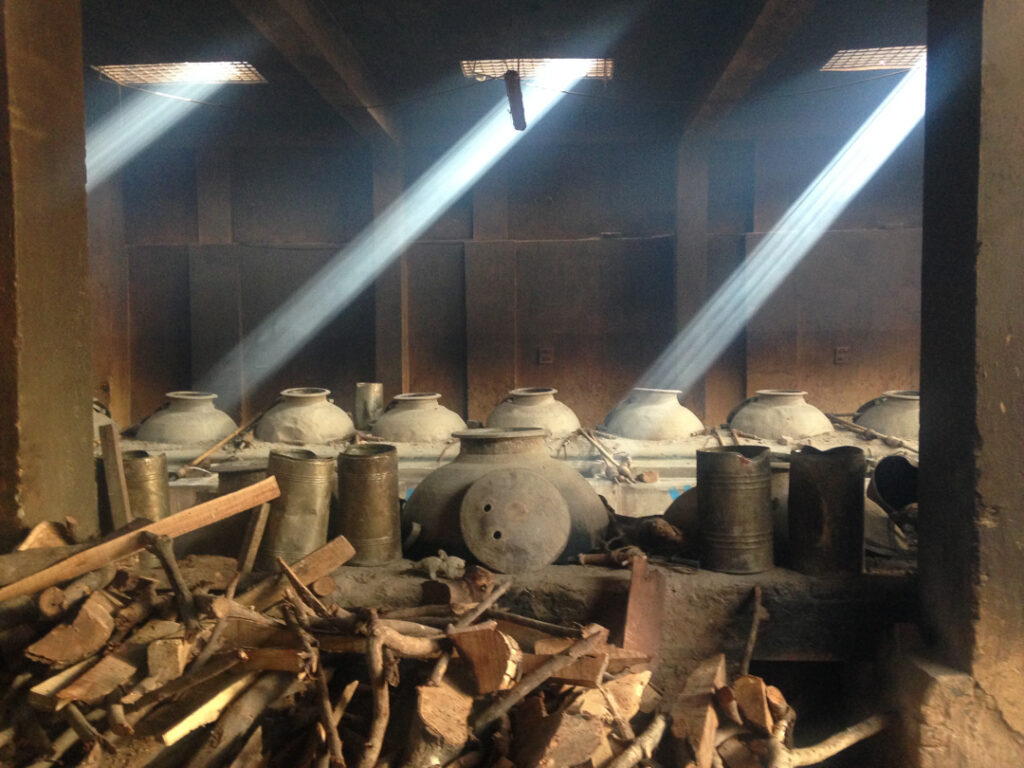
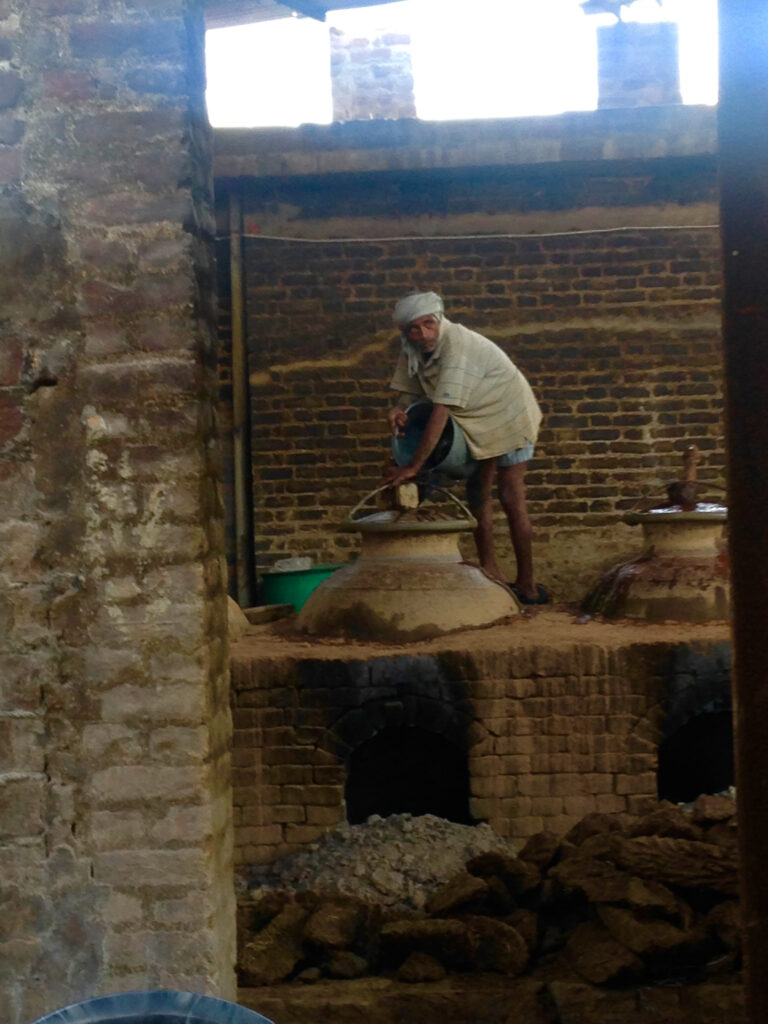
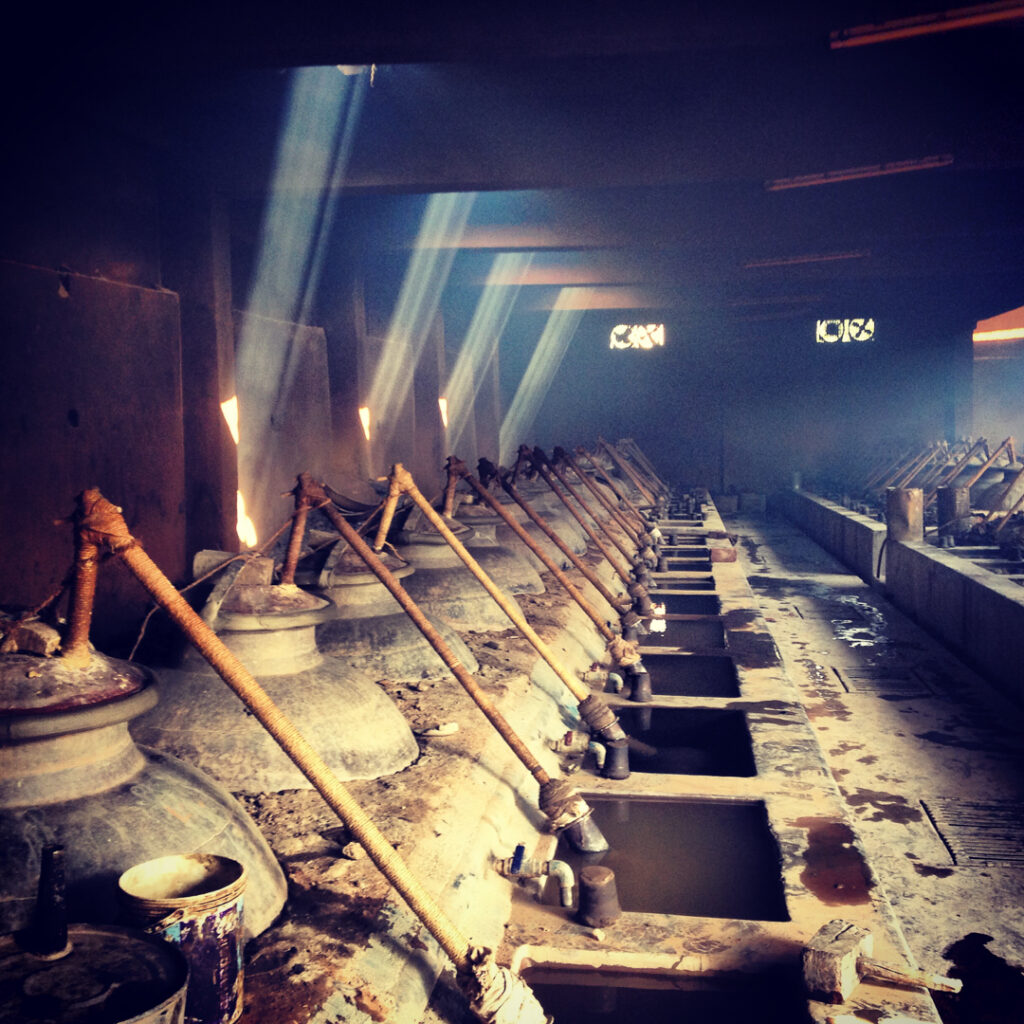
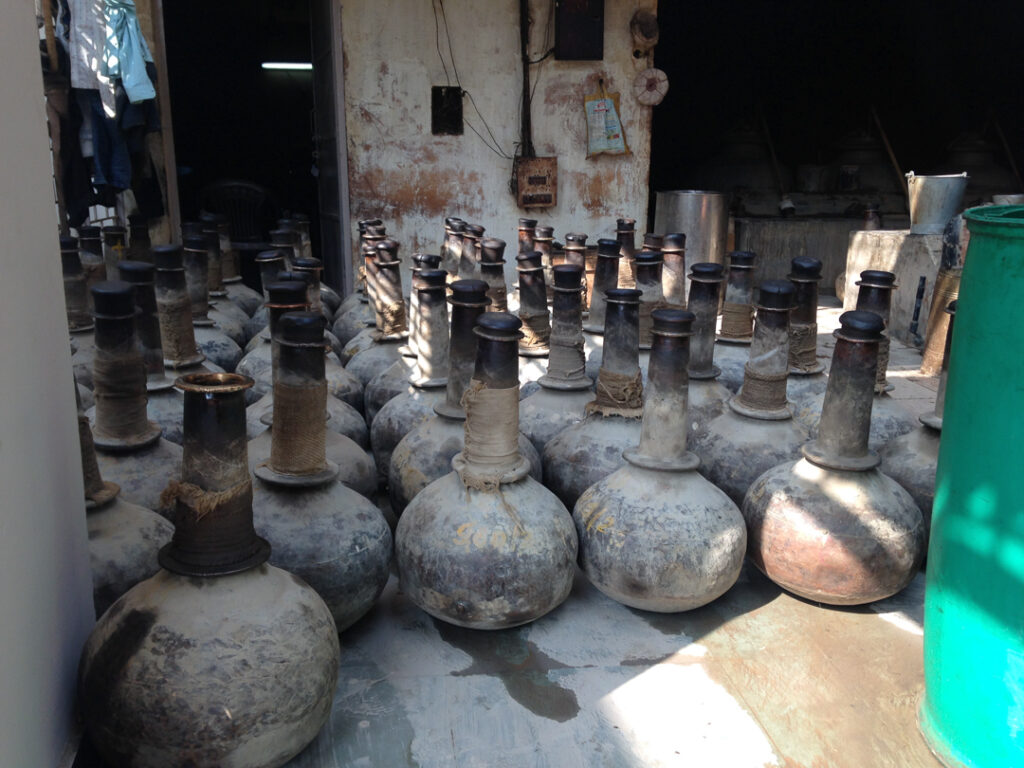
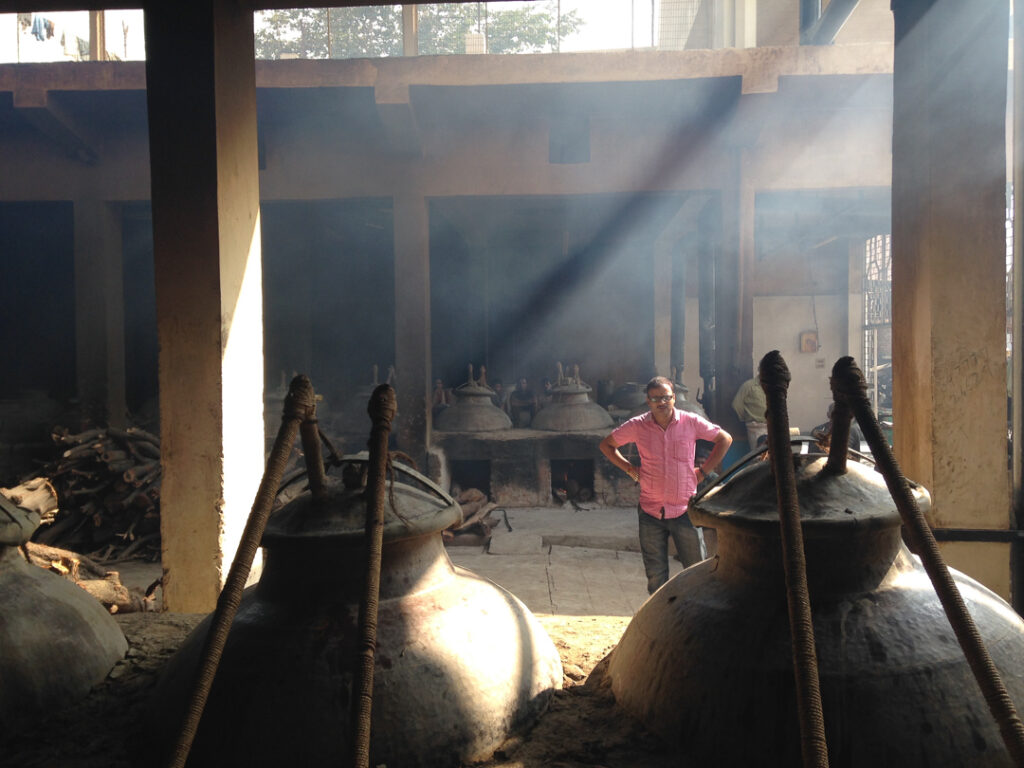
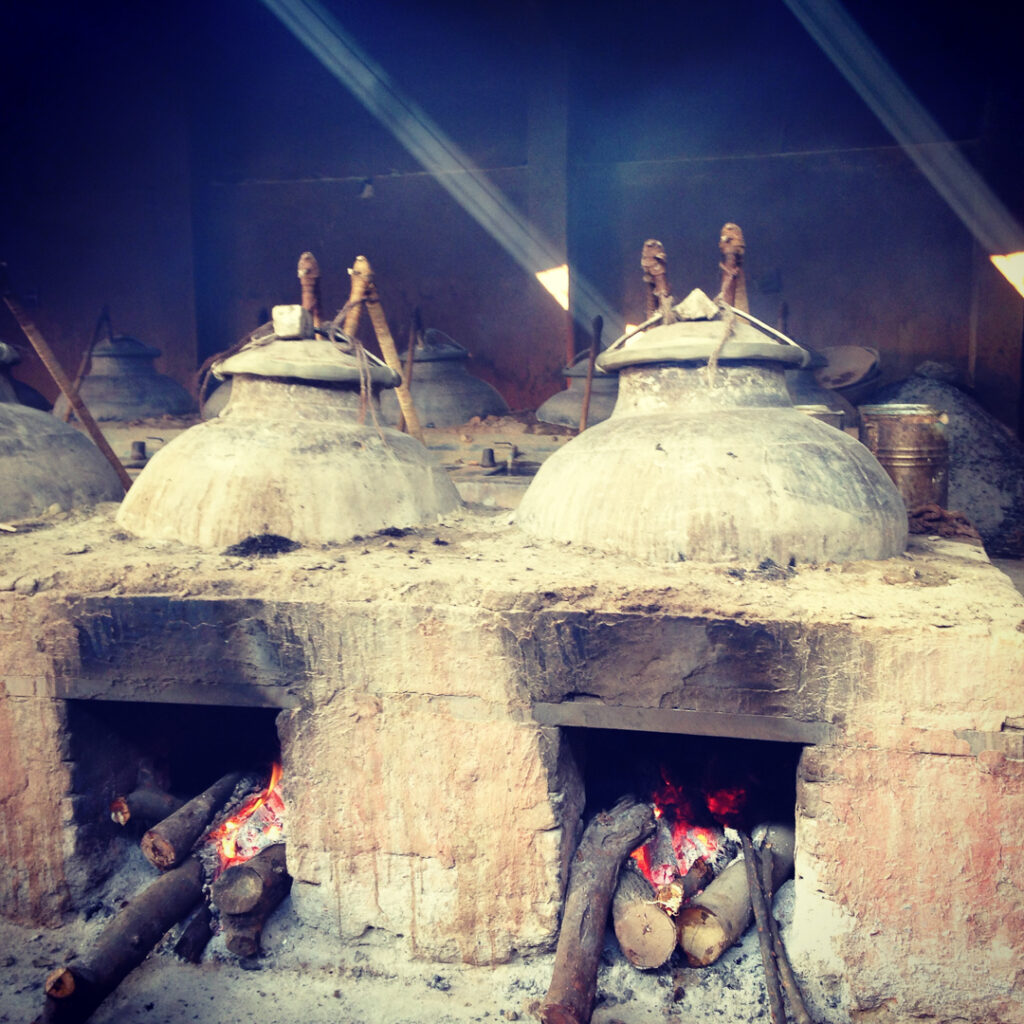
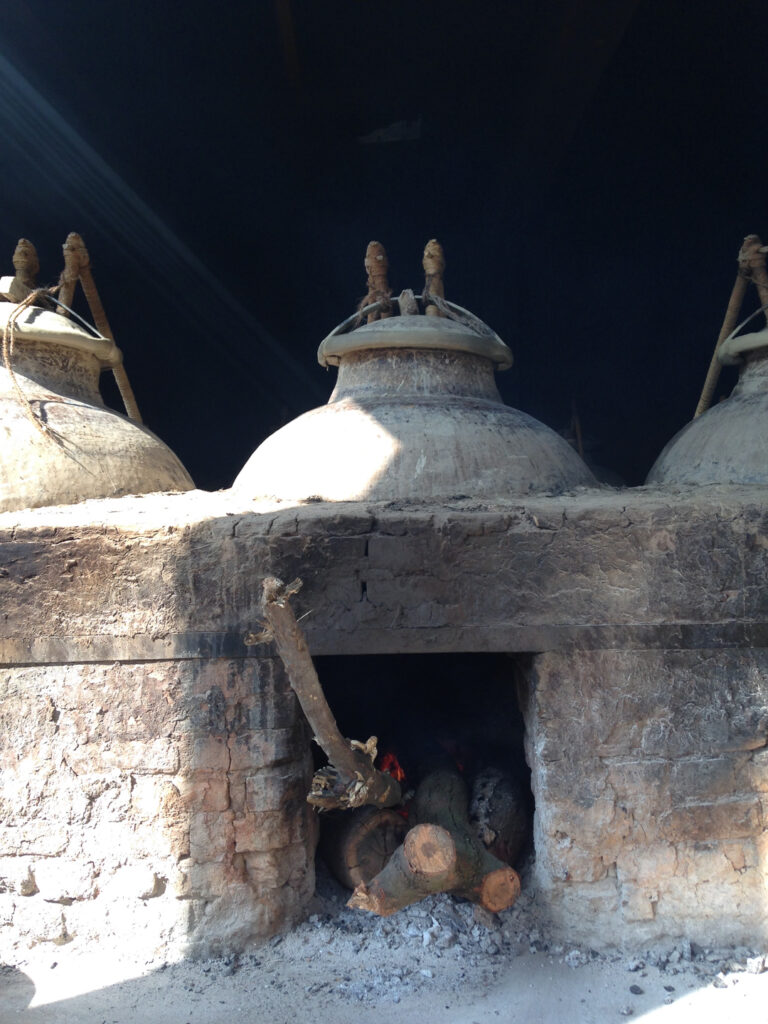
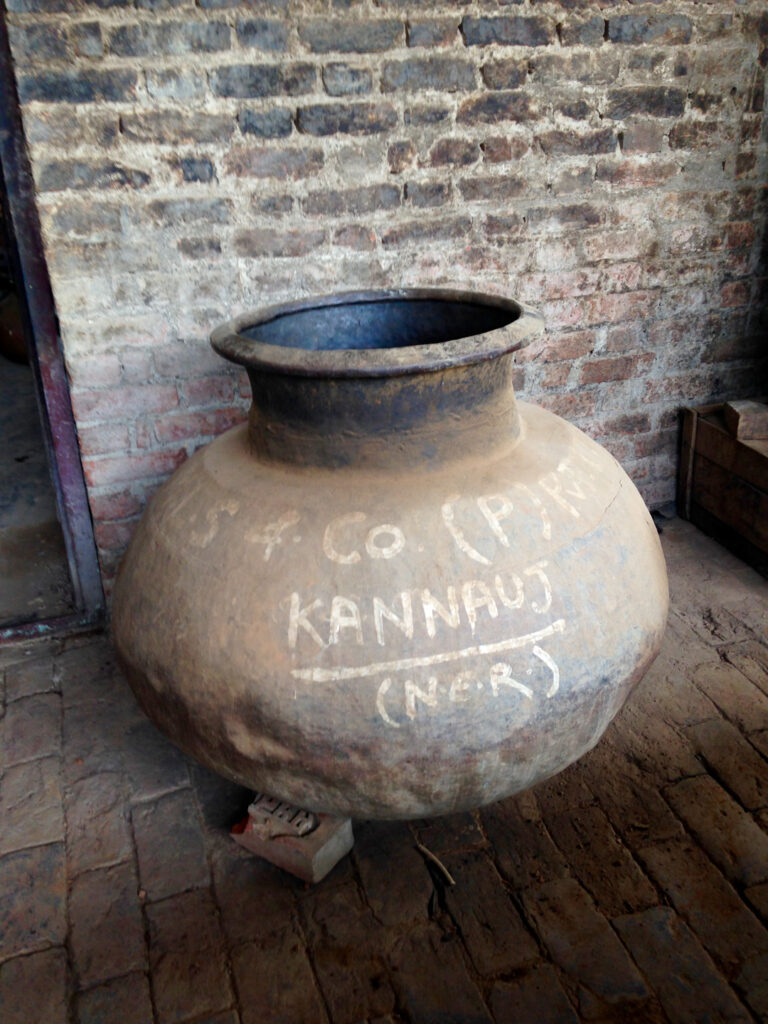
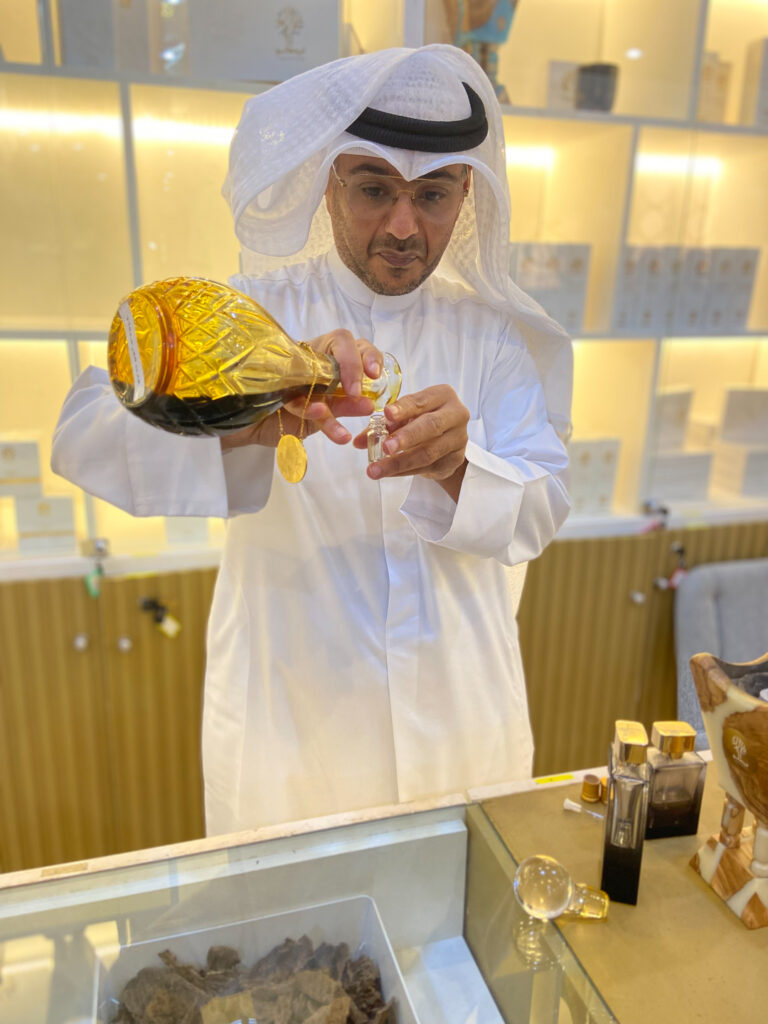
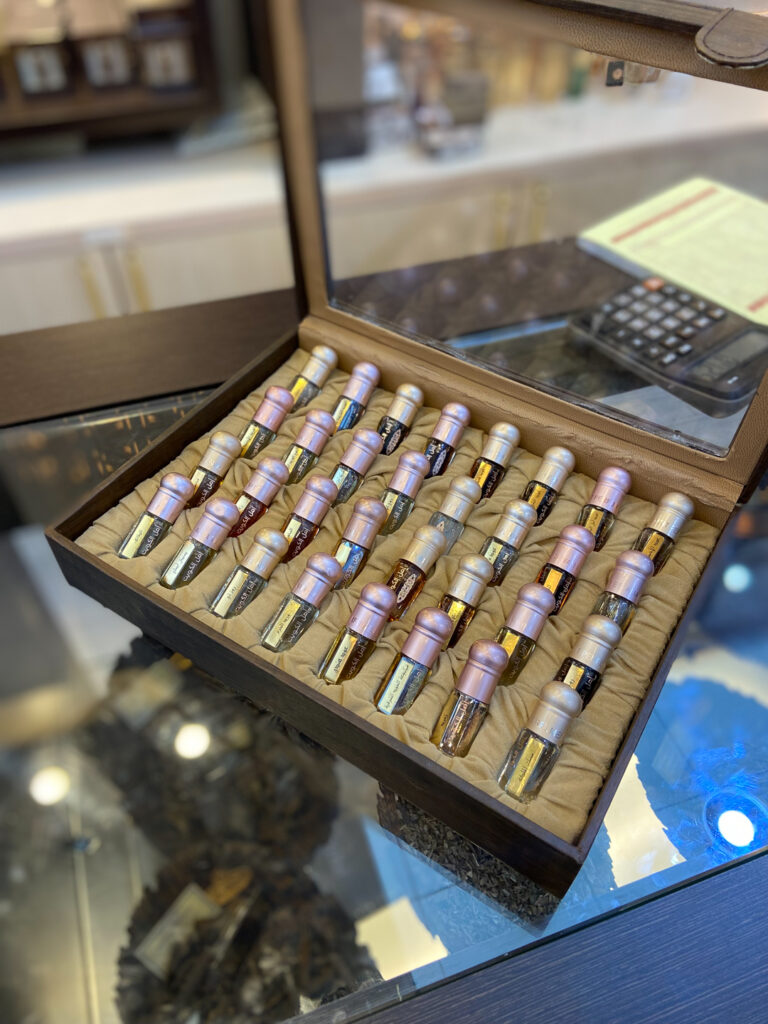


Comments
Thoroughly enjoyed the article Dwan, it brought back many memories. As a child I had visited Kannauj, and still retain the memory of the place and some old school photos on the banks of the river. The visuals of the scale of the distillery, the huge earth pots makes the narrative even more earthy ! On a personal note, I might take up applying of rose water on my moustache.
I am there in the rose gardens Dwan, thank you. Visiting perfume shops in India is a favourite, often near darghar (sufi shrine) undertaking. Kannaj is calling especially to see the big pottery processing vessels.
Very nice to come across this in the midst of everything. Hope you might be safe in Athens rather than in Beirut…